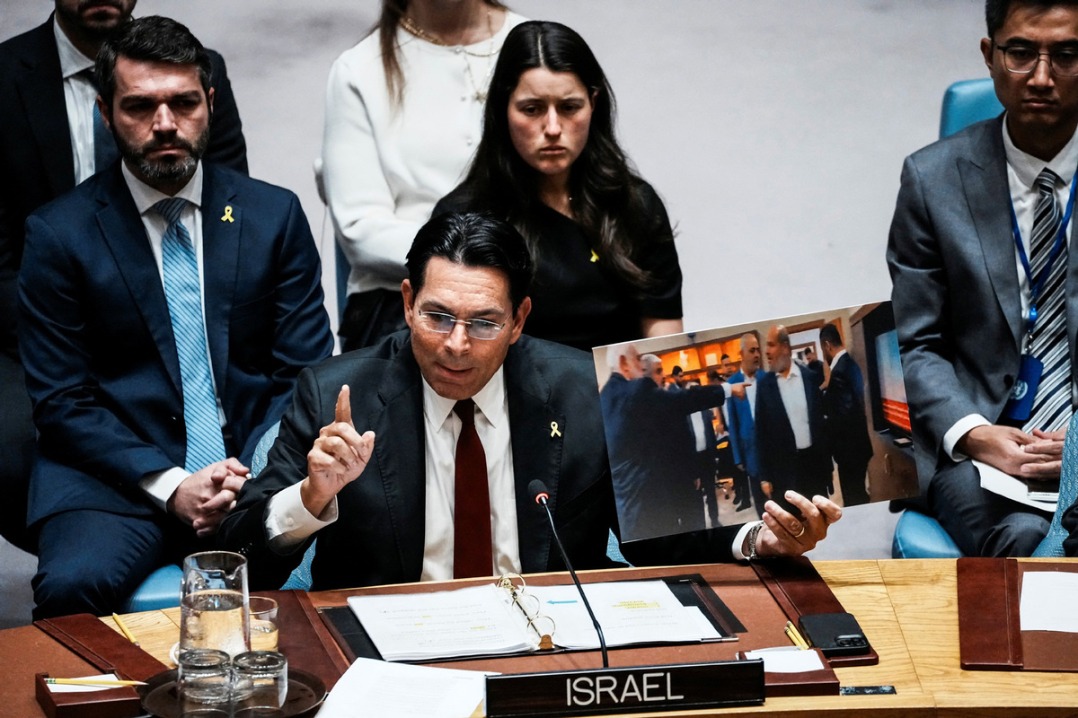Experts: UN's role in maintaining world stability remains vital despite challenges

The international order represented by the United Nations remains the broadest consensus of the global community and constitutes a precious source of stability in the current global landscape, experts and a senior official said.
Through institutional reform and functional reinvention, the UN can more effectively defend multilateralism and global governance against the menace of unilateralism, they said, adding that China can serve as a major stabilizing force in supporting such a multilateral system.
The UN, which emerged from the ashes of World War II, has expanded from a group of 51 founding members in 1945, when the UN Charter was signed, to a family of 193 nations today. It has made major achievements in promoting peace, human rights and global development, but at the same time has faced unprecedented challenges.
While this year marks the 80th anniversary of its founding, the UN continues to grapple with rising skepticism. In July, the United States announced its withdrawal from UNESCO — just two years after rejoining the UN body.
Since January, the US has announced its withdrawal from various UN bodies and international treaties, including the World Health Organization, the UN Human Rights Council, and the Paris Agreement on common effort to combat climate change.
A global survey conducted last September by US think tank Pew Research Center revealed a decline in favorable views regarding the UN in many parts of the world.
Amid this decline in public credibility and shrinking resources, UN Secretary-General Antonio Guterres launched the "UN80 Initiative" in March, aiming to reduce costs, simplify procedures, and enhance transparency and accountability.
Liu Tiewa, dean of Beijing Foreign Studies University's Country and Area Studies Academy, said the UN should urgently carry out systemic reforms and functional restructuring.
The organization should further promote inclusiveness, improve representation of developing nations and develop innovative cooperation mechanisms, in order to better defend multilateralism and global governance in the face of rising unilateralism and nationalism, she said.
To address the slow progress in meeting the 2030 Sustainable Development Goals, particularly in terms of global public health and climate change, she said the UN should explore new platforms and mechanisms to enhance policy implementation, and ensure continued international cooperation on global public goods even without the support of any major country.
Liu said that as the second-largest contributor to UN funds and a major contributor of UN peacekeepers, China has the potential to serve as a major stabilizing force in a changing global landscape.
"In promoting multilateralism, China should continue to serve as a stabilizer, firmly upholding international law and collaboration and actively participating in the UN framework reform process," she said.
Liu added that as a staunch supporter of multilateralism, China should help accelerate UN Security Council reforms and advocate for greater representation of developing countries in global governance.
Zhu Jiejin, deputy director of Fudan University's Center for the Study of the UN and International Organizations, said that "as a rising power, China should make greater contributions to humanity by actively providing public goods and allowing the world to share the benefits of its development".
Amid various political and financial challenges, the core ideal of the UN remains its most powerful asset. Li Wen, chief of mission of the International Organization for Migration in China, reflected on this enduring purpose from her years in service.
The UN is a "noble ideal" born from WWII devastation, she said, noting that the organization established a mechanism encouraging warring parties to pledge compliance with international law and rules and promote peace and cooperation.
"High hopes were placed on the UN, but gradually people's confidence waned (as the UN failed to solve certain problems). Nevertheless, we still need an ideal to guide us," she said.
According to Li, the UN's most important functions include offering guiding principles and standards, serving as a crucial communication platform to prevent conflicts, and upholding international law and rules to stave off global chaos.
"However, the UN is led by its member states, so it can only be as strong as its member states want it to be. ... Everything depends on whether member states are willing to have a strong, leading UN," she added.
yangran1@chinadaily.com.cn

































